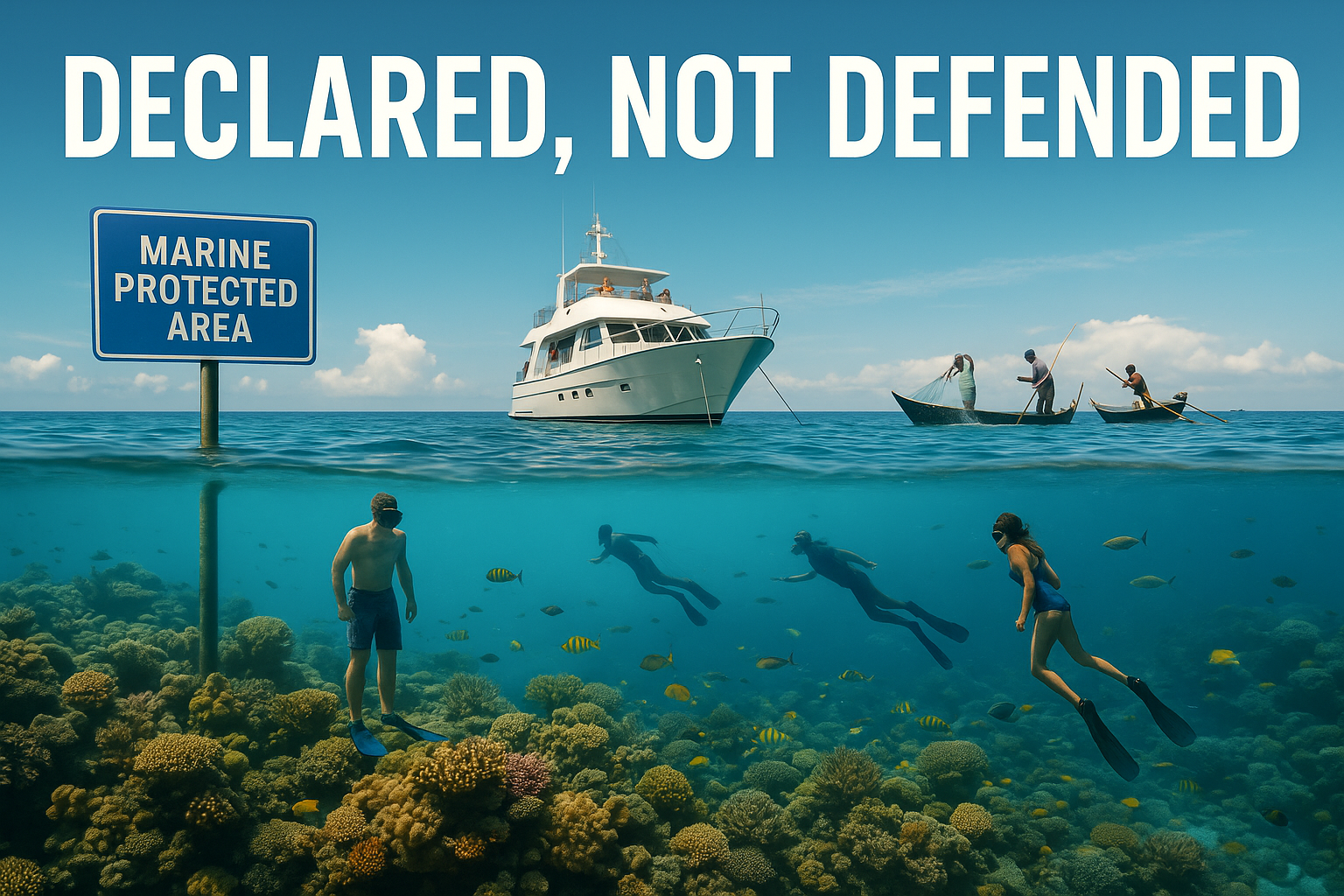
Protected on Paper, Plundered in Reality
The conservation world rewards declarations over defense — and everyone knows it.
In 2023, the United Nations agreed on the High Seas Biodiversity Beyond National Jurisdiction (BBNJ) Treaty, the first legally binding framework for governing the ~60% of the ocean that lies beyond any one nation’s control (UN, 2023). It was hailed as historic. And it is.
It also risks being meaningless.
Why? Because we keep measuring the wrong things, rewarding the wrong actors, and funding the wrong outcomes. The BBNJ Treaty is already being folded into the conservation world’s favorite vanity metric: 30×30 — the pledge to designate 30% of Earth’s land and sea as “protected” by 2030.
But here’s the uncomfortable truth: most of what we call “protected areas” aren’t protected at all. They’re paper parks — lines drawn on a map, declarations made from a podium — but with no rangers, no patrols, no enforcement. Even in wealthy countries, illegal fishing and poaching continue inside supposedly “protected” areas (UNEP-WCMC, 2022; Jones et al., Nature Sustainability, 2021).
We all know this. Yet few seem willing to say it plainly: declaring more MPAs without meaningful enforcement is worse than doing nothing. It creates a false sense of progress, a greenwashed victory that diverts attention and resources from real protection.

Five Uncomfortable Truths for Leaders in the Age of Intellegence
The most resilient and powerful actors in the next decade may not even look like companies or agencies — but like dynamic, adaptive networks you can’t draw on a chart.
That’s the unsettling reality of the Intelligence Age.
For decades, leaders were told to move faster. Some have moved beyond that, embracing synthesis: aligning technology, risk, and operations into a coherent whole.
But even synthesis may no longer be enough.
The board you’ve been playing on has already changed — and some of the assumptions behind even your best strategies no longer hold.
If you really want to lead in the Intelligence Age, you need to confront these five uncomfortable truths not just observations — they are the agenda. They define the landscape you must navigate. And while the questions may feel daunting, the path forward exists.
That’s why I wrote The Age of Intelligence: to give leaders frameworks for building relevance, allocating capital, and governing wisely in an era that rewards synthesis over speed, integration over inertia, and clarity over consensus.

Foresight - The New Superpower
In the age of AI and machine learning, foresight has become a new form of power—transforming decision-making across finance, healthcare, logistics, and governance.
Predictive systems are no longer tools of futurists—they’re the infrastructure behind institutional control. Those who build the models, own the data, and act fastest on insights gain decisive advantages in markets, politics, and public services.
But this rise of predictive power introduces deep asymmetries. A “foresight gap” is emerging, where only a few actors—governments, tech giants, and intelligence agencies—can model complex futures, while others are subject to opaque decisions they can’t influence. These systems shape opportunity and justice, yet often lack transparency and accountability.
Foresight can be abused: algorithms can reinforce bias, erode autonomy, or drive misinformation. To prevent this, we must treat foresight as civic infrastructure—investing in ethical design, inclusive governance, and AI literacy. Open models, scenario-based tools, and community data cooperatives are vital steps.
Ultimately, foresight doesn’t guarantee control—but it enables smarter, earlier, and fairer action. The ability to model the future is reshaping what’s possible, permissible, and just. What we choose to anticipate—and who we empower to act—will define the kind of world we build next.

Tragedy of the Cognitive Commons
Tragedy of the Cognitive Commons is a systems-level critique of how generative AI has quietly privatized the collective knowledge we spent decades building together.
Througah forums, blogs, open-source code, creative work, and shared research, we created a dynamic, participatory ecosystem — a cognitive commons. But that commons has been scraped, repackaged, and resold by models trained on our uncredited contributions.
The result? Systems that fluently simulate human insight, while severing the source. We are no longer co-creators, but consumers of derivative outputs based on our own work. Worse, the commons itself — once a place of dialogue and iteration — is eroding under the weight of passive consumption.
This essay argues for a return to reciprocal infrastructure: models that trace their lineage, credit contributors, and reinforce participatory intelligence. At Vital Ocean, we chose a different path — building OceanGPT on peer-reviewed science, with traceability, trust, and discoverability built in.
AI doesn’t have to exploit the commons. It can strengthen it.
But only if we redesign it — not just for answers, but for continuity, collaboration, and epistemic integrity.
This is not just about AI. It’s about what kind of intelligence we’re building — and who it’s really for.

Intelligence Without Direction
We’re building the future faster than ever — but we haven’t stopped to ask where it’s going.
Artificial intelligence is accelerating. New tools launch daily. Startups race to wrap powerful models in sleek interfaces. Investors chase speed. Founders chase demos. Everyone’s moving — but no one’s steering.
We’ve created astonishing technical capacity. But in the absence of shared purpose, the system defaults to momentum. What gets built is what’s easiest to ship. What gets funded is what looks good in a deck. And what gets lost is the question that matters most: What is all this intelligence for?
Right now, we’re pouring time, talent, and capital into tools that automate answers — but rarely deepen understanding. That simulate creativity — but skip the struggle that makes it real. Tools that impress on the surface, but leave us emptier the more we rely on them.
This isn’t a technology problem. It’s a vision problem. And it’s costing us more than we think.
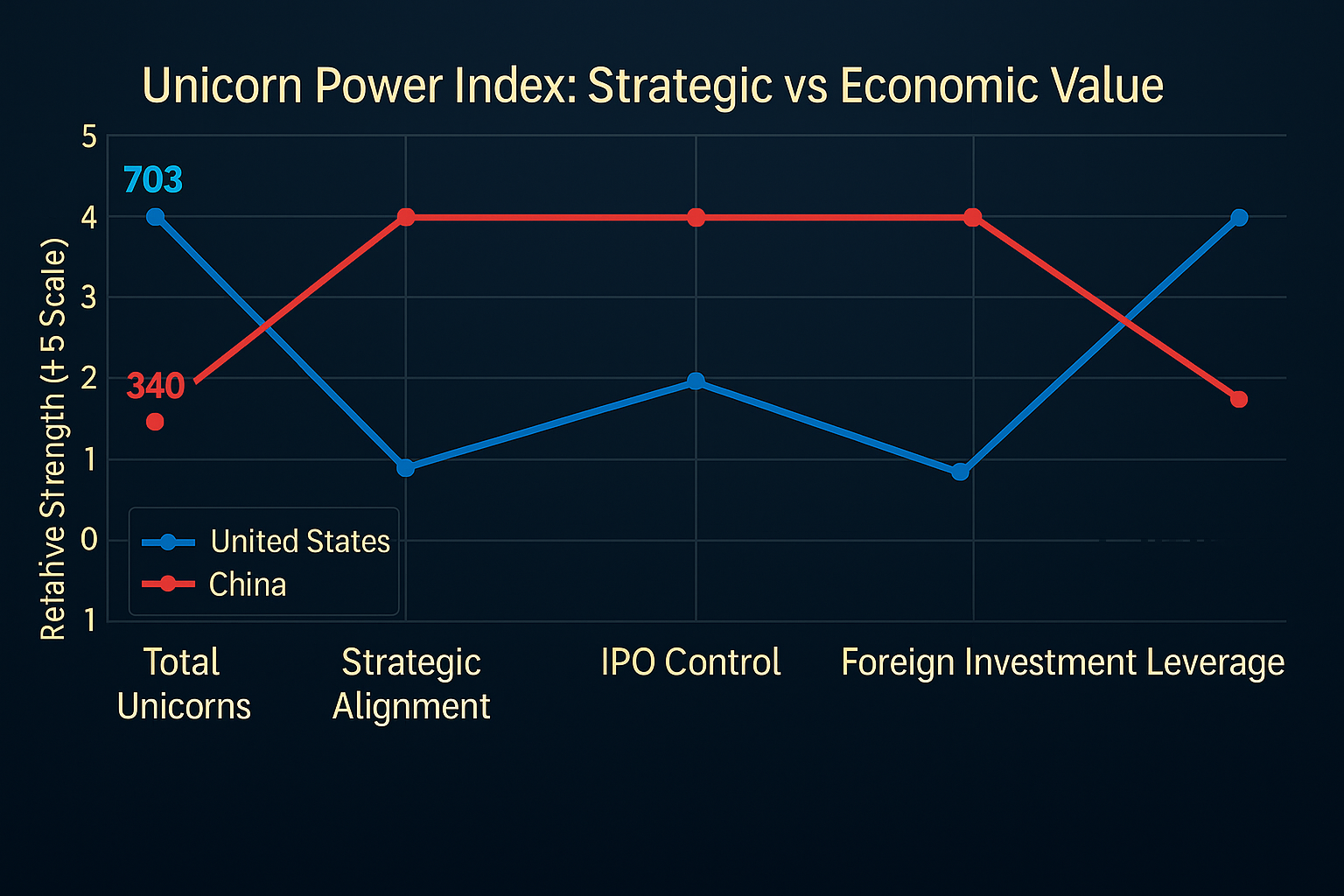
The Real Unicorn War
Everyone’s counting unicorns — but that’s not where the real power lies.
The U.S. leads the world in unicorn creation, with more than 700 billion-dollar startups compared to China’s 340. But quantity alone doesn’t define leadership in the modern innovation race. What matters more is how those startups are used: who controls them, where the value flows, and whether they reinforce national strategic advantage.
America’s model is decentralized and venture-driven. It scales fast, exits big, and dominates global platforms — but often shares ownership, profits, and control across borders. China’s approach is different: fewer unicorns, but tightly aligned with state priorities in AI, semiconductors, and quantum. Capital is retained. IPOs are steered domestically. Foreign investments are used surgically to import tech and influence.
This isn’t just an economic rivalry. It’s a battle over who shapes the architecture of the future — from digital infrastructure to industrial intelligence. Innovation has become a tool of sovereignty.
So maybe the question isn’t who builds more unicorns.
It’s who turns innovation into enduring leverage — and ultimately, geopolitical power.
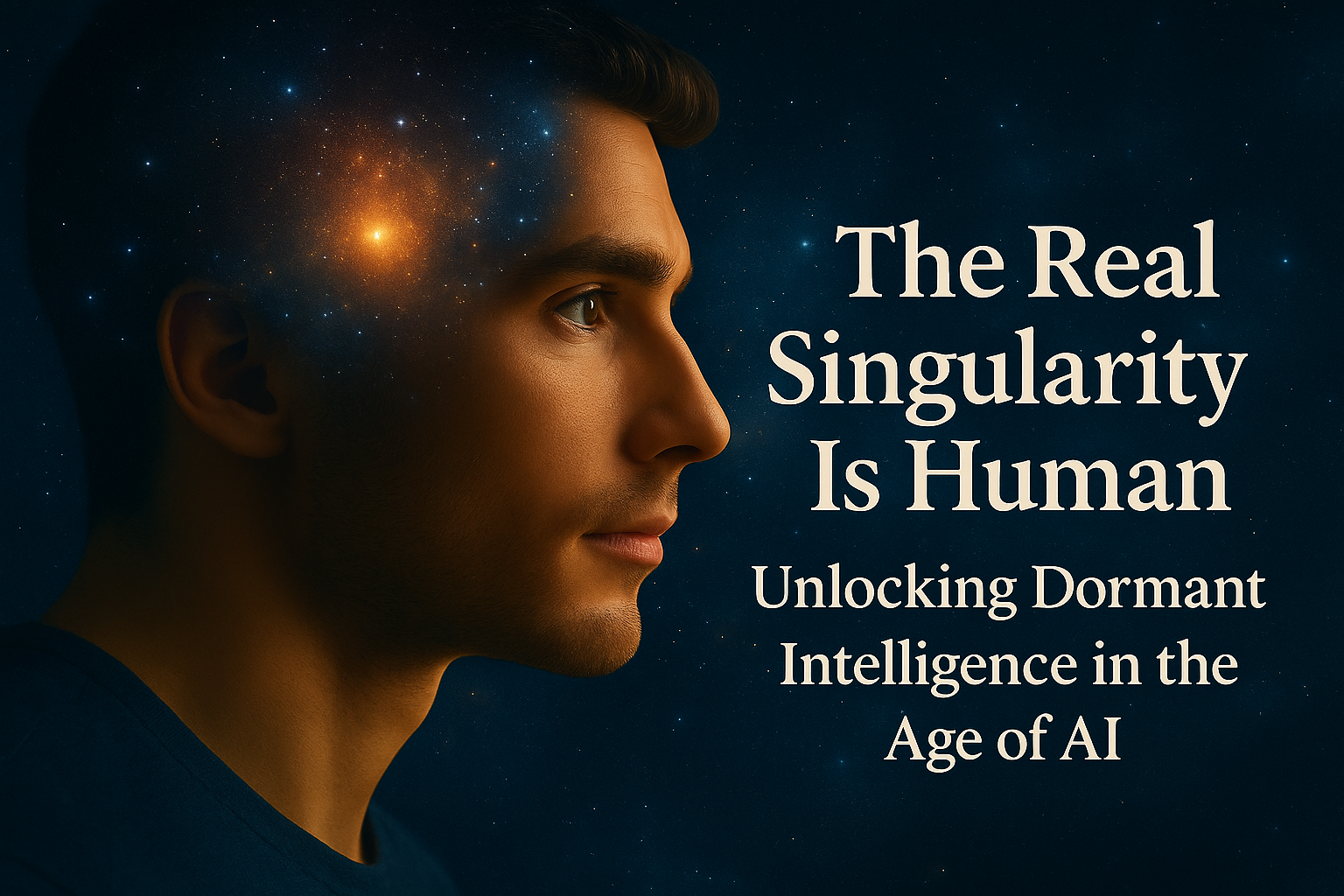
The Real Singularity Is Human
What if the real Singularity isn’t Artificial—but Human?
We’ve been conditioned to believe that the defining moment of our era will be when machines become smarter than us. But maybe the more important shift is internal: when we evolve into fuller, more integrated versions of ourselves.
While AI is accelerating at breakneck speed, most of our own intelligence remains dormant. We’ve mastered productivity but lost touch with emotional insight, moral imagination, creative intuition, and long-term thinking. These aren’t soft skills—they’re survival skills for a future that will demand more from us, not less.
In this essay, I explore a new kind of intelligence—one that’s layered, deeply human, and increasingly essential. I also share how we’re putting this philosophy into action through OceanIQ: an AI platform that doesn’t just process ocean data but helps leaders pause, reflect, and make better long-term decisions.
AI is not the hero or the villain. It’s a mirror. And what it reflects back depends on what we choose to develop within ourselves.
This is a call to rethink the future—not just of technology, but of what it means to be wise, awake, and fully human.
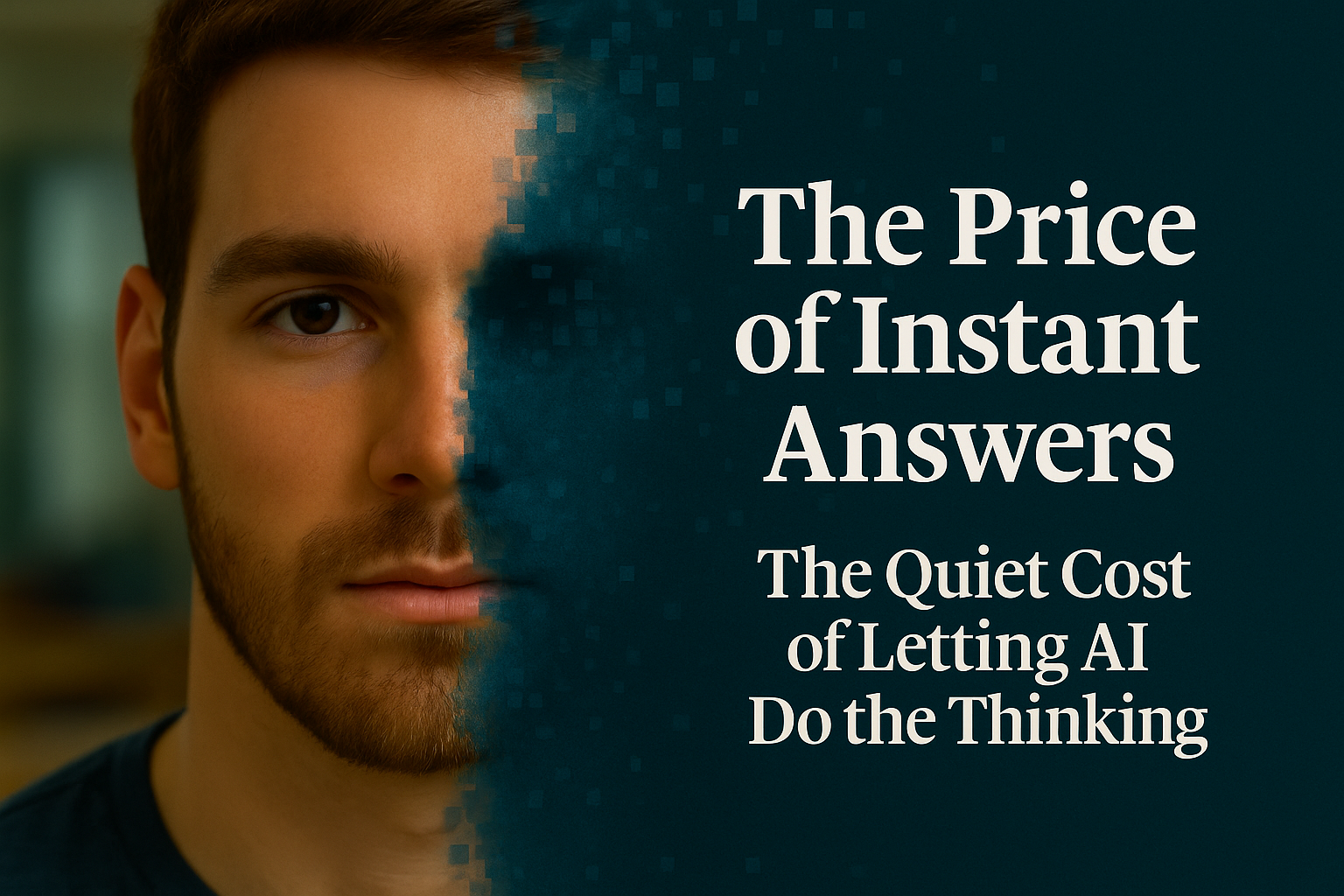
The Price of Instant Answers
We’re not just outsourcing tasks to AI — we’re outsourcing the very act of thinking.
AI can write your essay, pitch your idea, and answer your question before you’ve even finished thinking. It’s convenient, impressive, and dangerously seductive. Because the more we rely on machines to do the heavy lifting of thought, the less we remember how to do it ourselves.
The Price of Instant Answers is a wake-up call. It explores what’s quietly eroding beneath the surface of our AI-powered lives — not just attention spans or job security, but our very capacity for curiosity, struggle, and growth. We’re raising a generation that can prompt anything but understand nothing. And we’re mistaking frictionless output for real intelligence.
This isn’t about rejecting technology. It’s about reclaiming what makes us human — our questions, our instincts, our ability to wrestle with complexity and come out changed. The future doesn’t belong to the fastest thinker. It belongs to the deepest one.

The Family Office Advantage
The most transformative ideas don’t fit in pitch decks.
Some ideas are too early, too complex, or too honest to fit the funding boxes institutions recognize. They’re not broken — they just don’t match the template. And so they die, unfunded. Or worse, they survive in diluted form — reshaped to fit consensus, not to solve the problem.
Funding What Institutions Can’t is a call to the only capital still free enough to matter: family offices. With no boards, no LPs, and no need to chase trends, they have the rare ability to fund systems instead of stories — to act on vision, not validation. But too often, they adopt institutional behaviors that dull their edge.
This essay explores what family offices could become if they chose to fund what others won’t: unclaimed infrastructure, uncategorizable ideas, the connective tissue holding fragile systems together. Because in a world optimized for short cycles and safe bets, the future doesn’t belong to the boldest pitch. It belongs to whoever is willing to go first.

The Ocean Can’t Wait for Consensus - It Needs an Operating System
We are trying to govern a planetary system with bureaucracies designed for borders.
The ocean is dynamic, interconnected, and evolving faster than most of our governance structures can comprehend. Yet our tools for managing it still reflect a world of slow treaties, siloed mandates, and national jurisdictions. As marine heatwaves, fisheries collapse, and geopolitical tensions rise, the gap between ocean reality and decision-making capacity grows more dangerous by the day.
While dozens of organizations are working hard—from the UN to regional alliances to advanced science networks—their efforts often run in parallel, not in sync. Data is fragmented. Risks are missed. Decisions come too late or not at all. And as the stakes escalate, we’re left with too many dashboards, too few shared systems.
This article makes the case for something more foundational: a Global Ocean Operating System. Not a new institution, but connective infrastructure. A decision-ready environment where science, policy, and action converge—designed for speed, equity, and planetary scale. If we can model the ocean in real-time, we can govern it with the same clarity. But that won’t happen by accident. It has to be built—by those with the courage to move first.
The ocean won’t wait for consensus. It needs coherence. And it needs it now.

We Can Model the Ocean in Real Time - So Why Are We Still Flying Blind
We’re not short on ocean tools. We’re short on ocean systems.
Today, sensors track salinity in real time. Satellites map algal blooms from space. Digital twins simulate entire marine ecosystems before a single permit is issued. And yet—decisions still stall. Permits take years. Risks go unnoticed. For all our technological capability, we’re still governing the ocean with spreadsheets, siloed reports, and workflows designed for a slower, simpler era.
So what if the ocean had an operating system?
Not just another dashboard—but a decision-ready layer that connects science, law, planning, and action in real time. A shared environment where stakeholders can model trade-offs, visualize risks, interpret policy, and act before crisis hits.
This article explores what that system could look like—and why we can’t afford to wait. The tools are already here: digital twins, ocean-trained AI, real-time modeling environments. What’s missing is integration.
If we want ocean recovery and sustainable growth, we need more than innovation—we need coordination. At speed. At scale. And with shared trust.
Because in a system as fluid as the ocean, delay isn’t just inefficient. It’s dangerous.

The Blue Economy Is a Lie - Unless We Fix It
The blue economy is booming. But without systems, growth becomes risk.
By 2030, the ocean economy is expected to double—driven by offshore wind, marine biotech, regenerative aquaculture, blue carbon, and more. But we’re scaling new industries in the most fragile, interconnected system on Earth—and doing it faster than we’re building the safeguards to support them.
So the real question is: What kind of blue economy are we actually building?
Right now, even the most promising sectors are repeating old land-based mistakes—fragmented planning, ecological blind spots, and extractive logic dressed up as “sustainable.” Without the right systems—shared infrastructure, marine spatial intelligence, ecological protections, and enforcement—we risk turning ocean innovation into ocean impact.
The tools are here. The investment is flowing. But the foundation is cracking.
This article explores what happens when we treat the ocean like an economic frontier instead of a living system. It breaks down how regenerative models can work, why ocean funding so often stalls, and what it will take to build resilience at scale.
Because without structure, the blue economy won’t succeed. It will collapse under its own weight.
And if it fails the ocean, it fails us all.

What Happens When the Ocean Stops Working?
The ocean isn’t just beautiful. It’s essential. And it’s breaking down.
It produces over half our oxygen, feeds 3 billion people, and regulates our climate. But that entire system—the one that holds up life as we know it—is failing, fast.
This article is a deep dive into what’s happening right now in the ocean and why it matters to everyone, everywhere. From collapsing currents and acidifying waters to disappearing fish, dying reefs, and dead zones the size of small countries, the signs of ocean breakdown are all around us. And the consequences aren’t distant—they’re already hitting our food prices, insurance costs, housing markets, and national budgets.
This isn’t just an environmental crisis. It’s an economic, geopolitical, and human one.
We explore the cascading risks—from superstorms and sea-level rise to fisheries collapse and mass migration—and what it will actually take to turn the tide. Because the truth is, we’re not short on warnings. We’re short on systems. And time.
If the ocean fails, we fail.
It’s that simple.

The Most Dangerous People In The Next Economy
AI didn’t break the education system—it exposed it.
For generations, school has been less about learning and more about compliance. But now, with AI delivering personalized, on-demand knowledge faster than any classroom, the traditional model is crumbling. This essay is a personal reckoning: part critique, part parental field report from the edge of change.
As a father navigating college decisions with two teenagers, I’ve watched the system strain under its own weight—escalating costs, performative admissions, degrees losing value. One child dreams of game design, the other veterinary science—each facing a future where entry-level jobs are vanishing and AI is reshaping expertise itself.
The hard truth? We’re preparing kids for a world that no longer exists.
This isn’t a reformation. It’s an exodus. From industrial-age schooling to lifelong learning loops. From credentials to capability. From GPAs to portfolios. The students who thrive won’t be the most obedient—they’ll be the most adaptive.
If we want to raise builders, not just graduates, we have to let go of the old playbook. The future of education won’t be measured in diplomas, but in how well our kids can learn, adapt, and create—at speed and at scale.

The Sustainability Delusion: Why the 1% Can’t Save the Planet
A Movement Losing Its Way
While the planet approaches irreversible tipping points, much of the world remains indifferent. The problem isn’t just political—it’s psychological. Environmental issues are too invisible, too complex, and too disconnected from daily life for most people to act.
Meanwhile, the 1% who do understand—scientists, NGOs, and advocates—often fail to communicate in terms the 99% can relate to. They speak in ecological urgency but ignore economic reality. We’re told to “save the fish,” but no one explains how that helps feed families or lower insurance premiums.
The nonprofit world, trapped in cycles of donor-driven pilot projects and vague sustainability metrics, rarely scales real solutions. Worse, it avoids the business models and economic incentives that would make its work self-sustaining.
It’s time for a radical shift: from abstract sustainability to economic viability. From elite language to everyday relevance. From scattered pilots to scalable, systemic solutions.
We don’t need more awareness—we need action that works for the people whose lives are on the line. That means showing how environmental solutions create jobs, protect homes, and strengthen communities.
If we want to win the public, we must make saving the planet make sense—for them.

AI Is Moving Faster Than Ever & What History Warns Us About Its Future
AI Is Moving Faster Than Ever—What History Warns Us About Its Future
The AI revolution is moving faster than anything we’ve seen before. Entire industries will rise and fall at breakneck speed. History teaches us one thing: those who fail to adapt, fail to survive.
I’ve lived through the mobile and internet revolutions—helping launch global telecom networks and witnessing how new technologies reshaped communication, commerce, and power. Each shift brought extraordinary opportunities—but also unintended consequences.
Mobile made connection instant—but also enabled mass surveillance and digital dependency. The internet democratized information—while destroying trust in media and facts.
Now, AI is arriving with even greater force and speed.
This isn’t just about automation. It’s about how we define intelligence, agency, and the human role in decision-making. Will AI replace us—or empower us?
We’ve seen this story before. The winners aren’t just early adopters. They’re the ones who understand the patterns, adapt strategically, and take responsibility for the tools they create.
AI is not just a technology. It’s a force multiplier—for good or for harm.
The future is being written now. Are you reading the signals?
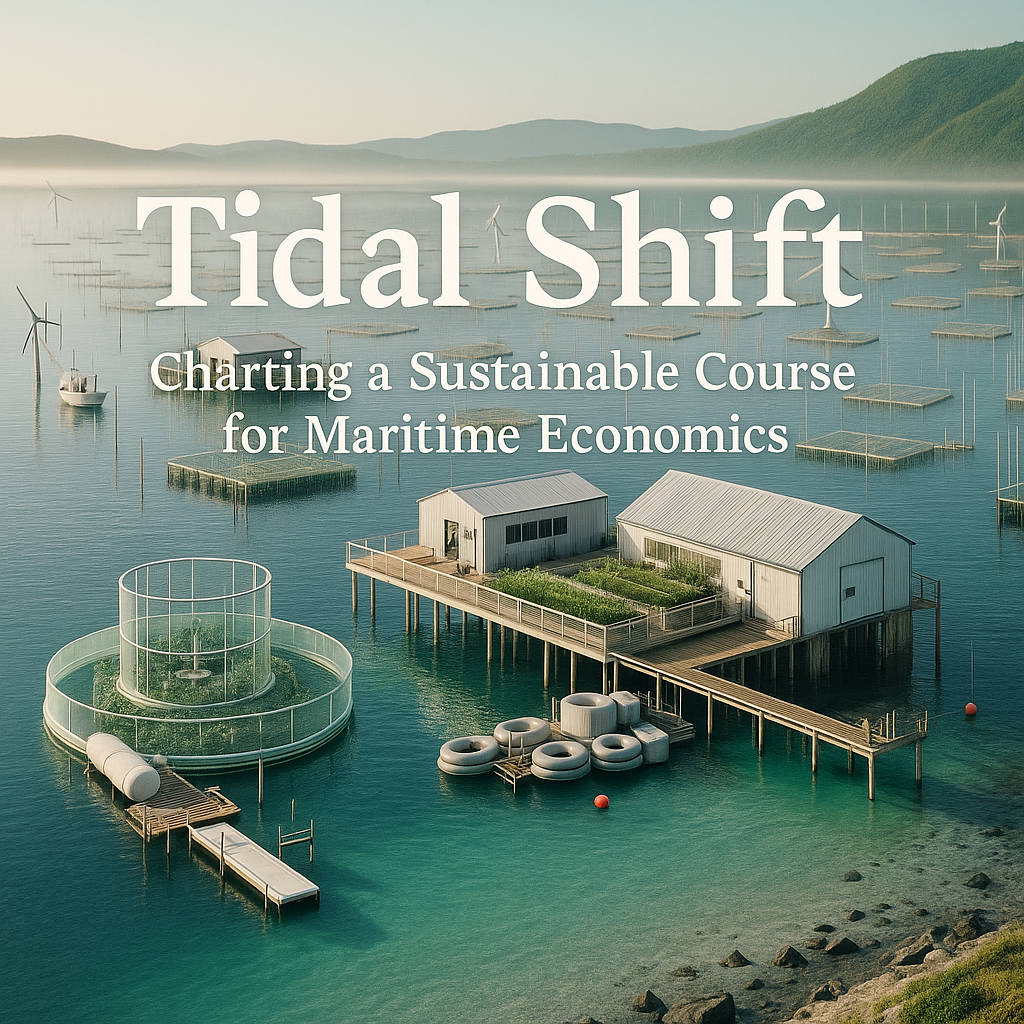
Tidal Shift
Charting a Sustainable Course for Maritime Economics
White Paper
The ocean economy is entering a pivotal decade—and business as usual won’t get us where we need to go.
Abundant Ocean Ventures presents a bold new model for maritime development—one that blends ecological regeneration, economic innovation, and social equity into a single, scalable system. This white paper introduces Systems Based Orchestrated Development (SBOD), a practical framework for turning ocean challenges into investable, community-driven solutions. From digital twins and AI-powered conservation to circular aquaculture and multi-stakeholder zones, AOV charts a path beyond extractive models—and into a future where business and biodiversity grow together. If you’re looking for what’s next in the blue economy, start here.

Something Extraordinary Happened in China
What should’ve been a celebration of innovation turned into a mirror reflecting our global priorities.
In 2019, I stood on the judging panel of the world’s largest entrepreneurial competition—4.6 million students, 1.19 million projects, 120 nations.
Our international judges—uncoached, diverse, and united only by instinct—chose a humble Indonesian project that gave voice to the deaf. We gave second place to a Brazilian platform that empowers the disabled.
In a sea of billion-dollar pitches, we chose humanity.
But we lost.To a drone attack helicopter.
That moment has never left me. And as the world barrels deeper into AI arms races, techno-solutionism, and global instability, the choice we face is no longer theoretical. It’s existential.
We can build technologies that elevate life—or engineer efficiencies that erode it. We can code for compassion—or optimize for dominance.I still believe in the power of innovation. But innovation with a conscience. With context. With courage.
If we don’t shape the values behind what we build, the tools we create will shape us in their image.
And we may not like what we see.